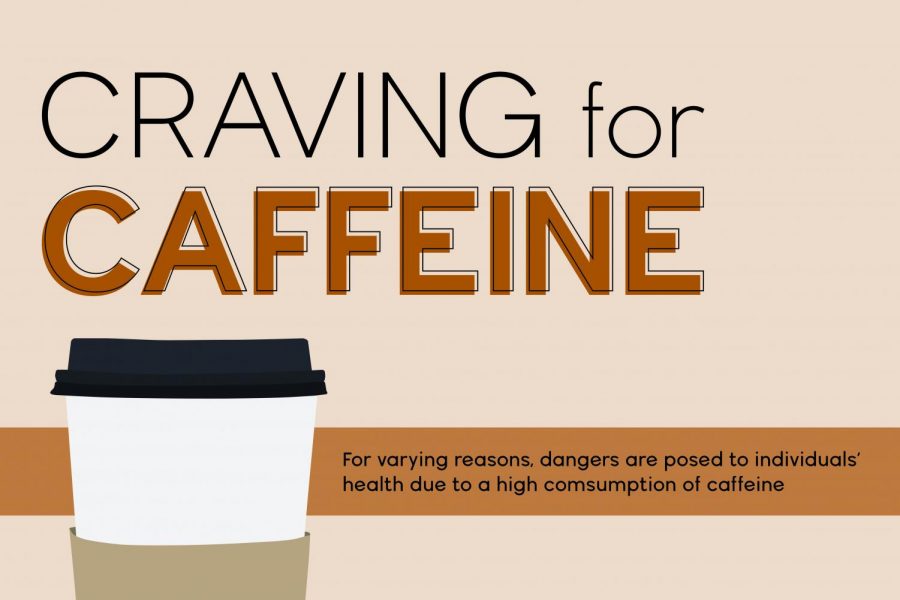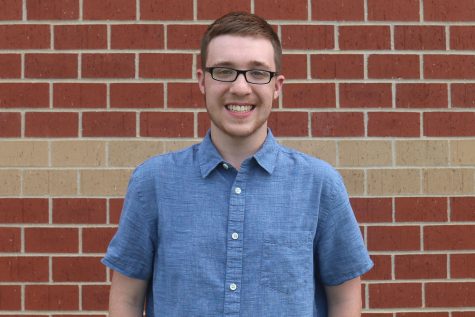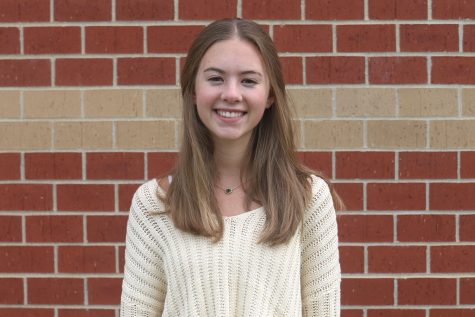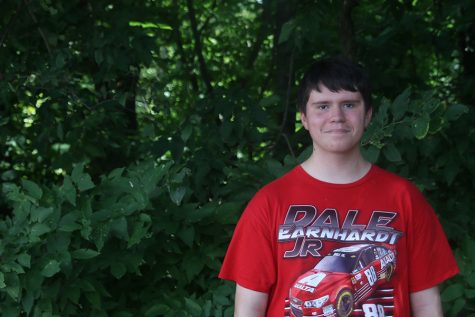Students experience negative and positive effects of caffeine
Religious and personal reasons go into students’ decisions to drink caffeine or not
February 12, 2019
Stopping by Starbucks before school because you absolutely need a caffeine hit before the test you have second block… oh, and you were up until 4 a.m. writing an essay due the block after that. As students get deeper and deeper into their high school experience, caffeine has become a way for many to keep up with all of the work. According to the Center for Disease Control (CDC), 73 percent of students consume caffeine daily with 24 percent of that being coffee.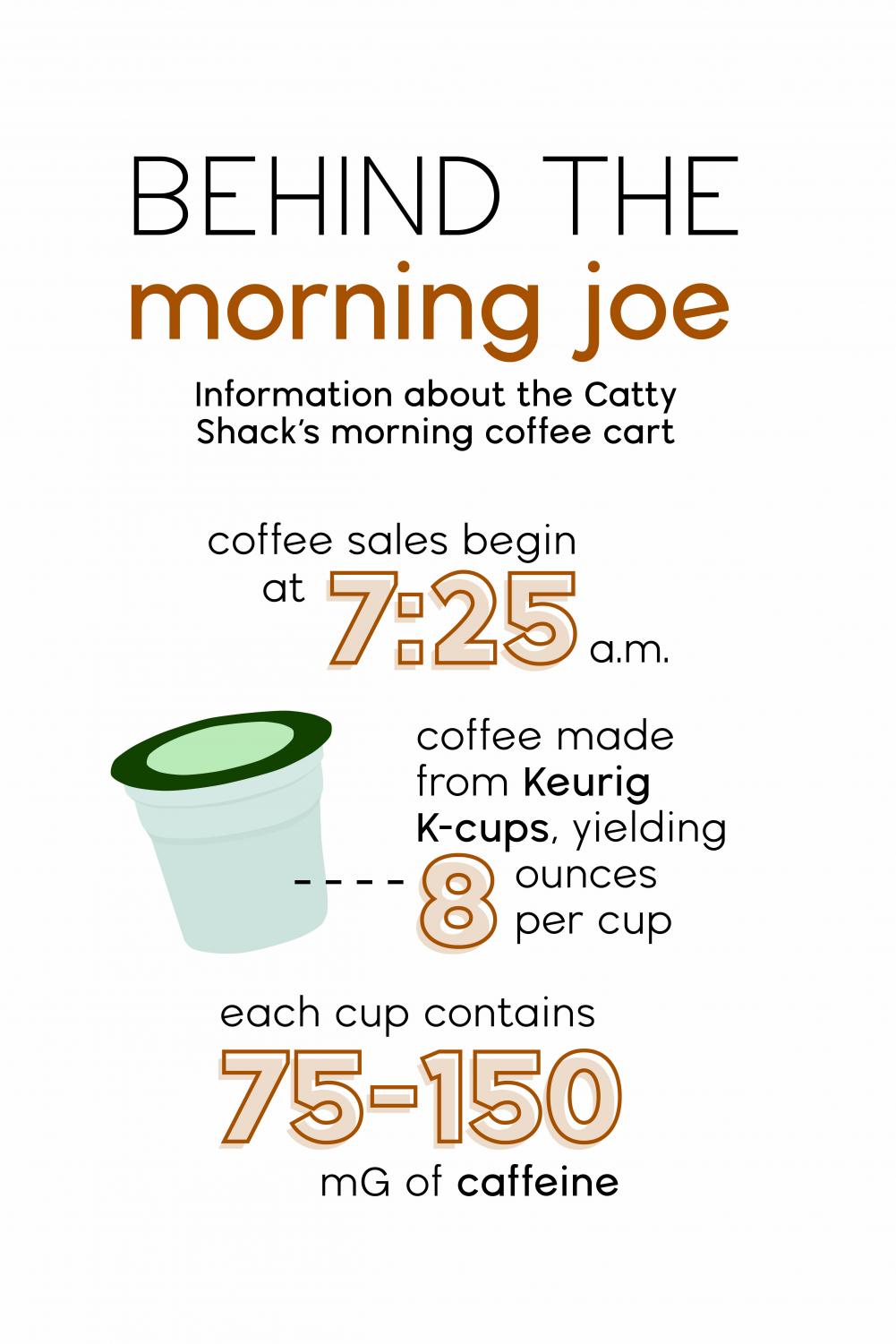
Students drinking caffeine has become an everyday occurrence at Mill Valley with 21 percent of students drinking caffeine everyday and 64 percent of students drinking caffeine at least once a week. Although caffeine usage is high, 75 percent of students feels that the caffeine they drink affects them positively.
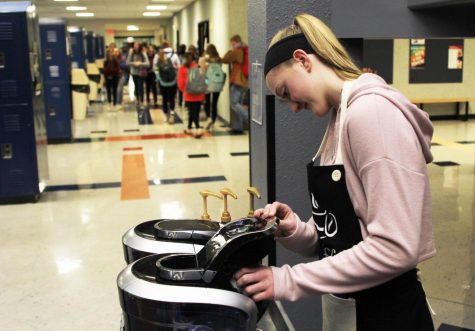
Preparing for the typical morning rush, senior Ally Appl places a Keurig K-Cup into the coffee maker on Tuesday, Jan. 22. “Usually we get a lot of business and sell a lot of coffee,” Appl said.
Although the majority of students (43 percent) receive their caffeine from soda, math teacher Jessica DeWild consumes her caffeine through coffee and tea like 24 percent and 12 percent of students respectively.
“I don’t have soda ever,” DeWild said. “[I drink] 70 percent coffee, 30 percent tea. I just think it tastes good, honestly.”
According to the Journal of Caffeine Research, caffeine can affect sleep and mood. Senior Dylan Wootton has seen some of these negative effects with his older brother Mill Valley alumni Jordan Wootton.
“In college, he would drink a pot a day, and now he cannot stop,” Wootton said. “He has to have at least a little bit or he will get a headache and go through a bit of withdrawal at the end of the day.”
Sophomore Amanda Mills, who drinks two cups of coffee each day, agrees that caffeine has negative aspects.
“[Caffeine] doesn’t always make you feel great and you can get addicted to it if you drink too much. If you don’t drink it, you’ll get a headache for a long time after,” Mills said. “Also, it’s just not ideal. You should be getting enough rest without having to drink coffee.”
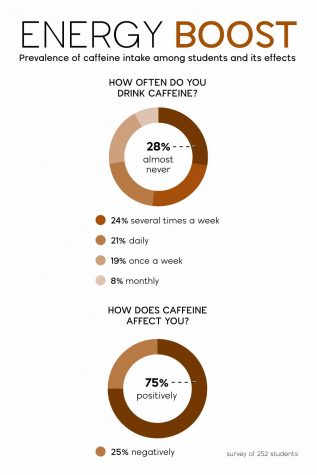
Mills believes caffeine is overall beneficial for students despite its downfalls.
“I would say [caffeine] positively affects the people around me because, while people are still tired during school, they are much more ready to be active and try to learn [when they drink caffeine] versus just coming to school being super tired,” Mills said.
DeWild feels that caffeine is okay as long as it is consumed in moderation.
“You can probably over do it … and coffee can be hard on your stomach if you drink a whole bunch of it, it could give you a bit of an upset stomach,” DeWild said.
Sophomore Abi Peters abstains from coffee due to religious and personal reasons.
“I am a member of the Church of Jesus Christ of Latter-Day Saints and we have been asked not to drink coffee by our prophet … It is a personal choice as well,” Peters said. “It is not like not drinking coffee is a demand, like we have to do it or we die, it is just something that I have decided to not do. I have seen people develop bad habits with and maybe get addicted, and I don’t really need that in my life.”
In contrast, Mills appreciates the energy that caffeine gives her.
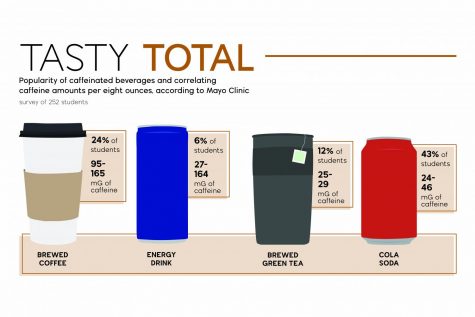
“I like that it can help me stay awake,” Mills said. “There is always that option if I am staying up late the night before and I have so much to do, I can be like ‘It’s fine, I’ll just have an extra cup of coffee tomorrow’ and it makes me feel better.”



